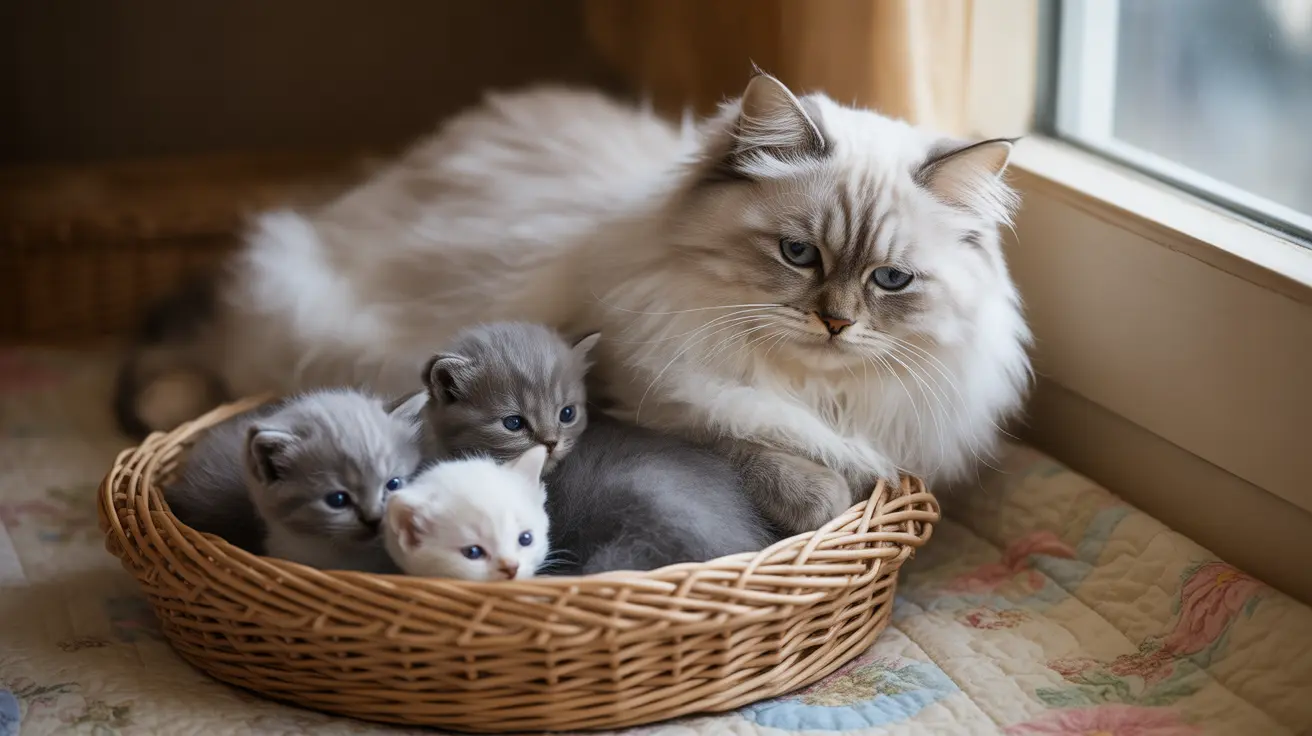When it comes to maternal health, we often think about human mothers experiencing postpartum depression. But what about our feline friends? Many cat owners and breeders have observed concerning behavioral changes in mother cats after giving birth, leading to an important question: can cats get postpartum depression?
While the clinical evidence for postpartum depression in cats is still emerging, veterinary experts acknowledge that cats can experience significant mood and behavioral changes following birth. Understanding these changes, their potential causes, and how to support affected cats is crucial for ensuring both mother and kitten welfare.
Understanding Feline Depression After Birth
Cats can experience various emotional and behavioral changes after giving birth. While we can't directly compare these changes to human postpartum depression, veterinarians recognize that mother cats may exhibit concerning symptoms that require attention and care.
These changes can range from mild mood alterations to more severe behavioral issues that might affect both the mother cat's well-being and her ability to care for her kittens properly.
Common Signs and Symptoms
Physical Symptoms
- Decreased appetite or complete loss of interest in food
- Lethargy beyond normal post-birth fatigue
- Changes in grooming habits (either excessive or negligent)
- Unusual vocalization patterns
- Changes in sleep patterns
Behavioral Changes
- Withdrawal from kittens and human family members
- Reluctance or refusal to nurse
- Aggression toward kittens or other pets
- Lack of interest in surroundings
- Unusual litter box habits
Causes and Risk Factors
Several factors can contribute to post-birth mood changes in cats:
- Hormonal fluctuations following pregnancy and birth
- Physical exhaustion from labor and nursing
- Environmental stressors or changes
- Previous traumatic experiences
- Underlying health conditions
- Large litter size causing overwhelming stress
Supporting a Cat with Post-Birth Depression
If you suspect your cat is experiencing postpartum depression, consider these essential steps:
- Schedule a veterinary examination to rule out medical issues
- Provide a quiet, safe space for mother and kittens
- Maintain consistent feeding schedules
- Monitor nursing and kitten care closely
- Offer gentle support while respecting the cat's need for space
Prevention and Management
Creating an optimal environment before, during, and after birth can help minimize the risk of postpartum mood issues:
- Prepare a comfortable, private nesting area
- Maintain regular routines
- Minimize household disruptions
- Ensure proper nutrition
- Monitor for early warning signs of distress
When to Seek Veterinary Help
Immediate veterinary attention is necessary if you observe:
- Complete rejection of kittens
- Aggressive behavior toward kittens
- Severe lethargy or depression
- Refusal to eat for more than 24 hours
- Signs of physical illness or complications
Frequently Asked Questions
Can cats experience postpartum depression after giving birth?
Yes, cats can experience mood changes and behavioral issues after giving birth that resemble depression, though it may manifest differently than human postpartum depression.
What are the common signs of postpartum depression or mood changes in mother cats?
Common signs include withdrawal from kittens, decreased appetite, lethargy, changes in grooming habits, and unusual vocalizations or aggression.
How can I tell if my cat is neglecting her kittens due to depression or stress?
Watch for signs such as refusing to nurse, avoiding the kittens, not responding to their cries, or showing aggressive behavior toward them.
What causes postpartum depression or mood disturbances in cats, and how is it different from human postpartum depression?
While cats can experience post-birth mood changes due to hormonal fluctuations, physical stress, and environmental factors, their experience differs from human postpartum depression in both manifestation and treatment approaches.
How should I care for a cat showing signs of postpartum depression or unusual behavior after birth?
Provide a quiet, safe environment, ensure proper nutrition, monitor mother and kittens closely, and seek veterinary care if concerning behaviors persist or worsen.
Remember, while feline postpartum depression may not be fully understood, taking these mood changes seriously and providing appropriate support can help ensure the health and well-being of both mother cats and their kittens.






